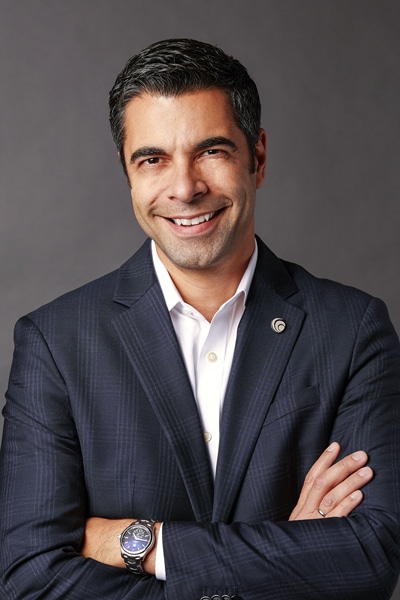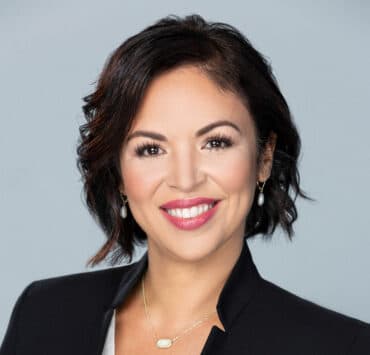|
Getting your Trinity Audio player ready...
|
It’s one of the most memorable scenes in the history of cinema: Elliot wears a red hoodie and pedals furiously with E.T. concealed in his basket. Just before they reach the federal agents waiting to apprehend them, the bike lifts off the ground and into the air. John Williams’s orchestral music soars as the boy and his alien friend sail to safety through the night sky.

Although Jeff Jorge saw the movie when he was just six years old, he can still remember another detail, something so seemingly insignificant and normal that most viewers would never think twice about it. In an earlier scene, when Elliot turned on the faucet in his kitchen sink, steam rose into view. Elliot’s family had hot water.
Jorge, who grew up in Brazil’s southernmost region and remembers huddling around one space heater for warmth, was awestruck. And Elliot had more than hot water. He ate exotic-looking candy, lived in a safe neighborhood, and had a room full of toys. By the time the credits ended, Jorge had made up his mind—one day, he would live in the United States.
The world looked different when Jorge exited the theater. He was a happy child but was suddenly aware of the Brazilian economy’s fluctuation and how, at that time, his family had very limited means. And he saw how hard his parents worked to shield him from it all: previously, he thought his family simply liked to eat chicken. In reality, his parents were plucking the inexpensive birds to make and sell feather earrings to pay the bills.
But the family navigated a difficult economy together. When his junior year of high school arrived, at a time of relative prosperity, Jorge’s family found a way to make his dream a reality through a foreign exchange program. Unfortunately, when the year was over, Jorge lacked funds to pursue higher education in the United States. He had, however, gained one thing that would set him apart forever—fluency in English.
Jorge returned to his native Brazil but never gave up on his dream. He worked full-time as a mechanic, taught English as a second language, and placed subtitles in vintage Roy Rogers movies—all in an effort to pool resources to make his family’s ends meet. Four years later, as his family situation improved, he scraped enough money together to pay for one year of college. As a skilled tennis player, Jorge hoped an athletic scholarship would cover the final three years. He enrolled at Middle Tennessee State University for its engineering program, but what Jorge did not realize was that the school was also home to a well-ranked NCAA Division 1 tennis team. While he made the team as a walk-on, he wasn’t able to land a full scholarship.
The months that followed were marked by financial hardships outmatched only by Jorge’s resilience and drive to succeed. Jorge sold his used car to pay for tuition, started couch surfing due to no longer having a place to live, and cut back to one meal per day—all the while maintaining a nearly 4.0 GPA. A combination of competitive scholarships and a paid internship with Fortune 500 automotive supplier TRW created the financial environment where Jorge could graduate debt-free. The internship also led to a full-time job offer from TRW, inclusive of one important benefit—a work visa.
“Few things are better than sharing life with the people you love. When you combine the support of family, personal responsibility, hard work, and a clear vision, amazing things can happen.”
The next decade brought an important period of personal and professional growth as Jorge accepted international assignments and took on various leadership roles. After expanding TRW’s operations in Mexico, he transitioned to Delphi to help that automotive company grow its footprint in Western Europe. Then, he returned to Michigan to enroll in the MBA program at the University of Michigan while helping develop Delphi’s Ford account. In roles of increasing responsibility, Jorge led marketing strategy for Delphi’s electronic systems division, as well as the company’s initial foray into medical devices.
Jorge had spent years traveling the world, bringing very talented people together to solve large problems for well-known companies. But what did middle market companies do to solve the same problems? As Jorge pondered that question, he noticed a gap in the market.
In 2009, Jorge validated the model for providing global expansion support as a service and created his own company—Global Development Partners (GDP)—to fill that gap. In a span of two months, he had enough clients to take his new venture full-time. By 2013, GDP had offices in the United States, Mexico, and Brazil and was attracting both larger clients and the attention of major suitors. In 2015, Jorge finalized a deal to merge with Baker Tilly.
GDP became a service line within Baker Tilly and helped Jorge bring his vision and value into the Middle East, Eastern Europe, and Southeast Asia. In one particular assignment, his team helped one client expand to thirty-two countries in just eighteen months. “This was a classic merger success story because it gave Baker Tilly new capabilities and gave me a new platform from which to accomplish results that would have been hard to do quickly on my own,” Jorge says.
The early success led to an expanded role. Today, Jorge leads Baker Tilly’s international services across 145 territories and also leads the market inroads for mobility, supply chain, and manufacturing teams. Even prior to Baker Tilly navigating the impact of COVID-19, Jorge and other Baker Tilly leaders intentionally focused on the team dimension of the organization.
“There are multiple variables at play,” he explains. “Yet, my experience and that of so many others confirm that the best-performing teams are so because they have a clear vision that compels action, interconnected objectives, mutual trust and accountability, psychological safety, and an unwavering ability to work together. All of those variables are controllable—and it starts with leadership and fostering a culture where individuals bring their whole selves to work.” While Jorge acknowledges the work is never finished, the firm has underscored its commitment through hallmark initiatives such as Diversity, Inclusion, and Belonging for Success (DIBS), the Racial Equity Advisory Group, and the Silver Linings program, which is designed to promote wellness and an appropriate work/life balance for team members.
Although Jorge is enjoying his life and career in the United States, he’s maintained close ties to his family and heritage. In fact, over the years, he was able to help his parents and brother immigrate to the US. “Few things are better than sharing life with the people you love,” he reflects. “When you combine the support of family, personal responsibility, hard work, and a clear vision, amazing things can happen.”
Recently, the Jorge family came together to celebrate a birthday with a churrasco, a traditional barbeque popular in their native Rio Grande do Sul. The next morning, as Jorge was cleaning up around the house, he noticed his son’s bicycle lying in the front yard—an unthinkable thing in Brazil considering the nation’s general safety and theft conditions. It was a simple reminder of how far he’d come. “I lacked nothing as a child. Yet, my son enjoys aspects of a life I never had,” Jorge says. “And he’s safe in a land that’s full of opportunity where he, too, can make his dreams happen.”
Partnerships with Power
For Jeff Jorge and Baker Tilly, external partnerships are key to success. In early 2020, the organization turned to Cook Ross to enhance its efforts around diversity, inclusion, and equity. “Cook Ross helped us zero in on what we do well and make improvements that matter to our team members and the communities we serve,” Jorge says. “We always want to improve, and our external partnerships provide growth opportunities.”
Leaders at Cook Ross concur about the impact of this partnership. “The partnership with Baker Tilly has been an invaluable experience,” says Myla Watley, a project manager and consultant at the company. “Baker Tilly is genuinely committed to improving and expanding their DEI initiatives in transformational ways, and Jeff’s unique perspective has been instrumental in identifying these opportunities.”

